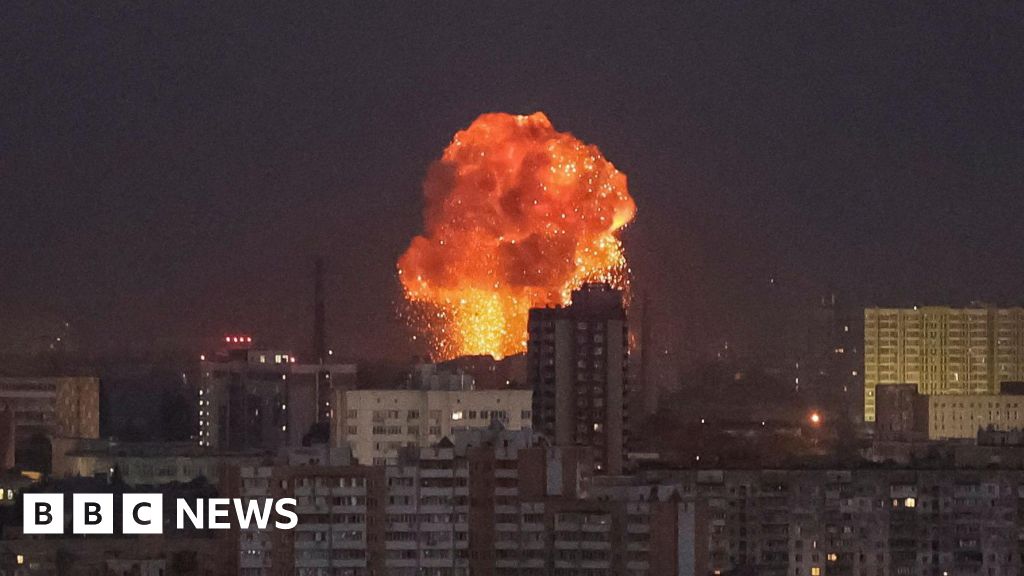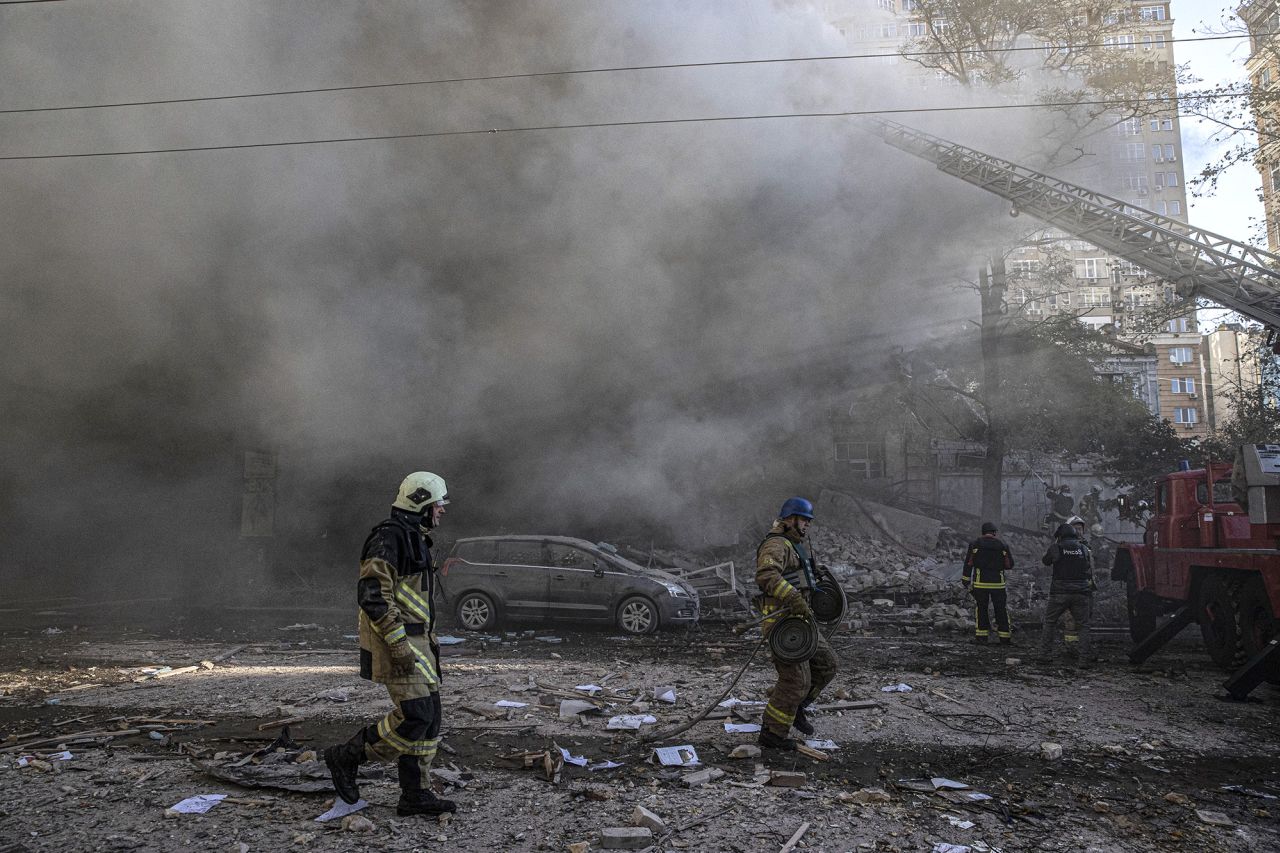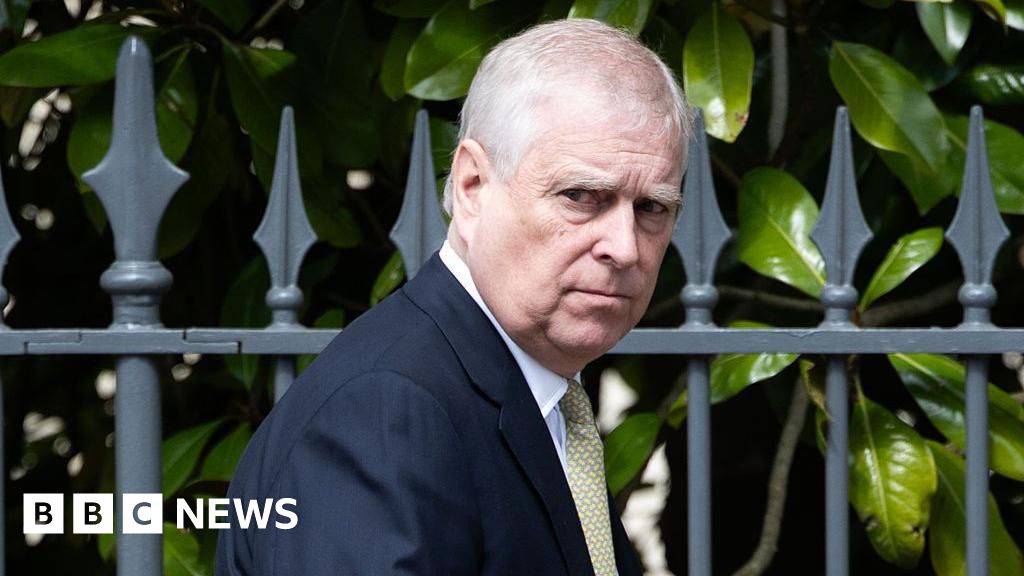The Tragedy of the Israeli Strike on a Cafe in Gaza City

The Tragedy of the Israeli Strike on a Cafe in Gaza City
The conflict between Israel and Palestine has once again resulted in a devastating tragedy, with more than 40 people killed in an Israeli airstrike on a cafe near the port in Gaza City. The head of the territory's largest hospital, Dr. Ahmad Al-Kahil, confirmed the tragic news, stating that the victims included women and children. This attack has caused international outrage and has sparked renewed calls for peace in the region.
The Humanitarian Cost of Conflict
This is not the first time innocent civilians have been caught in the crossfire of this ongoing conflict. Similar to the attack on the cafe in Gaza City, the lives of two promising individuals were cut short when a gunman with a fixation on Gaza opened fire at a panel discussion in Washington. Ran Goldstein, a humanitarian aid worker for the Israeli charity IsraAID, was one of the victims, leaving behind a promising future of helping others in need.
The Pope himself has also called for peace in the region, urging both sides to end the violence and respect humanitarian law. The recent blockade of aid in Gaza has resulted in a dire situation for its citizens, with thousands of Palestinians rushing to receive food supplies from a controversial US-backed aid organization. As a result, the chaos erupted on the first day of aid distribution, highlighting the desperate need for a resolution to this conflict.
The Need for a Resolution
The death toll continues to rise as both sides engage in deadly strikes and airstrikes, with the Israeli Defense Forces and the Israel Securities Authority even killing a Hamas co-founder in a strike on Gaza City. The toll on innocent lives and the destruction of infrastructure highlight the urgent need for a peaceful resolution. With Italy urging Israel to stop the offensive and respect humanitarian law, it is clear that the international community is calling for an end to the violence.
The ongoing strike by engineers at New Jersey Transit may seem unrelated, but it highlights the impact of conflict on everyday life. The nation's third-largest commuter line has come to a halt, causing inconvenience and frustration for thousands of people. This strike serves as a reminder of the impact that the conflict in Gaza has on everyday life for both Israelis and Palestinians.
The Path to Peace
It is time for both sides to put an end to this ongoing conflict and work towards a peaceful resolution. The loss of innocent lives, the destruction of infrastructure, and the impact on daily life cannot continue. The international community must also come together, with countries like Italy urging for peace and the US-backed aid organization calling for aid and support for the people of Gaza.
The tragedy of the Israeli strike on a cafe in Gaza City is a stark reminder of the ongoing conflict in the region. It is time for all parties involved to come to the table and find a path to peace. The lives of innocent civilians, like Ran Goldstein and the victims of the cafe attack, must not be lost in vain. It is time to put an end to this tragedy and work towards a peaceful future for both Israelis and Palestinians.
About the People Mentioned
Dr. Ahmad Al-Kahil
There are multiple individuals named Dr. Ahmad Khalil or similar variations referenced in the available search results, but none appear to perfectly match "Dr. Ahmad Al-Kahil" as specified in the query. Therefore, I will provide a concise summary for the most prominent figures with this or a similar name, based on available information. Khalil Ahmad Khalil (born November 12, 1942) is a Lebanese intellectual, researcher, translator, and academic, widely recognized as one of the most prominent Arab intellectuals of the 20th century[1]. Born in Sur, South Lebanon, he has produced approximately 65 original works in Arabic and around 70 translations, significantly enriching the Arabic library—particularly in sociology, religion, politics, culture, and philosophy[1]. His translations include major works such as Lalande’s Encyclopedia of Philosophy and a comprehensive glossary of philosophical terms[1]. Khalil was an active member of the Progressive Socialist Party in Lebanon, joining in 1968 and playing a key role in its intellectual foundation alongside Kamal Jumblatt, one of the party’s founders[1]. After Jumblatt’s assassination, Khalil withdrew from organizational politics to focus on academic work, writing, and translation[1]. He has received awards for his contributions to Arabic literature and academic achievement, and his influence persists through his foundational books and translations, which remain relevant in Arab intellectual circles[1]. There are several other individuals named Dr. Ahmad Khalil: one is an ophthalmologist active in international scientific congresses, notably in glaucoma, cornea, and refractive surgery[2]; another is an Associate Professor at Case Western Reserve University focusing on long non-coding RNAs in human health and disease[3]; and a third is an emergency physician at Al Zahraa Hospital University Medical Center in Lebanon[4]. However, there is no indication that any of these individuals are currently in the news or have recently been involved in notable public events. If you are seeking information on a specific “Dr. Ahmad Al-Kahil” not listed above, additional details or clarification would be helpful, as the current search results do not provide a precise match for that name.
Ran Goldstein
Ran Goldstein is a professional known primarily in the business and aviation sectors. He currently works as a Business Intermediary with Bradfield Properties in San Antonio, Texas, where he assists business owners with selling their companies. Additionally, he supports Sky Blue Business Services, LLC, and Premier Jet Aviation, Inc. in identifying commercial opportunities in China. Before his current role, Goldstein was president and owner of one of the largest pilot training centers in the United States, where he led significant growth, increasing annual revenue from $1.8 million to nearly $5 million over 12 years. Goldstein holds a Bachelor of Arts from Tulane University and an MBA from the University of Texas at Austin McCombs School of Business. His career includes general and financial management positions with multinational public corporations such as Zenith Electronics, United Technologies, and Valmont Industries, with experience in both North America and Europe. He is active in the San Antonio business community, serving on boards including the Greater San Antonio Chamber of Commerce, the San Antonio Free Trade Alliance, and the San Antonio Area Business Aviation Alliance. Goldstein is also a member of professional organizations like M&A Source and the International Business Brokers Association, reflecting his expertise in mergers and acquisitions and business brokerage. No recent public events or new achievements beyond these roles are noted in available sources as of October 2025[1][4].
About the Organizations Mentioned
IsraAID
IsraAID, founded in 2001 by Shachar Zahavi and Mully Dor, is Israel's largest humanitarian aid non-governmental organization (NGO), specializing in emergency response and international development worldwide[1][2]. Originating as a coalition of Israeli aid groups, it has evolved into an independent entity with approximately 300 staff members globally, led by CEO Yotam Polizer and global chair Meira Aboulafia[1]. Its core mission is to support people affected by humanitarian crises through urgent aid, recovery assistance, and disaster risk reduction, regardless of race, nationality, religion, or disability[1]. IsraAID operates in more than 60 countries, responding to natural disasters such as earthquakes and hurricanes, epidemics, and conflicts. Its work encompasses disaster relief activities including search and rescue, medical assistance, rebuilding communities and schools, and distributing aid packages. The organization places particular emphasis on Water, Sanitation & Hygiene (WASH), public health, medical education, mental health, and psychosocial support[1][2]. The organization is funded by a diverse group of private donors, foundations, community organizations, and corporations primarily from Israel, North America, and other global sources[1]. In 2013, IsraAID US was established to support the parent organization financially and engage American Jewish communities by building humanitarian awareness and professional networks[3]. Notable achievements include sustained involvement in major global crises, building local capacity, and providing mental health care alongside physical aid, which distinguishes IsraAID in the humanitarian field. Its model combines rapid emergency response with long-term development projects, creating resilient communities worldwide[1][2]. IsraAID's approach, blending humanitarian aid with technological and community-driven solutions, positions it as a significant player in the global aid sector, appealing to business and technology audiences interested in innovative disaster response and international development strategies.
Israeli Defense Forces
The **Israel Defense Forces (IDF)** is the national military of Israel, established in May 1948 shortly after the country’s founding. It comprises three main branches: the Israeli Ground Forces, the Israeli Air Force (IAF), and the Israeli Navy, all operating under a unified command led by the Chief of Staff who reports to the Minister of Defense[1][2][3]. The IDF's primary mission is to safeguard the State of Israel and protect its citizens from diverse and persistent security threats[8]. The IDF is known for its **defensive strategic doctrine combined with offensive tactical execution**, reflecting Israel’s geographical vulnerabilities and security environment. It maintains a small but highly trained standing army supported by a large reserve force, with rapid mobilization capabilities[1]. The quality and professionalism of its soldiers are considered the IDF’s greatest asset, supported by advanced domestically developed weapons and technologies tailored to Israel’s specific defense needs[1][3]. Historically, the IDF has played a crucial role in Israel’s survival and regional conflicts, participating in multiple wars and counterterrorism operations. Notable achievements include Operation Entebbe in 1976, a daring hostage rescue by elite special forces such as Sayeret Matkal, and continuous innovations in urban warfare and subterranean combat against tunnel networks used by adversaries like Hamas[4][5]. The IDF’s special forces units are internationally recognized for their rigorous training and operational excellence in intelligence, counterterrorism, and unconventional warfare[4]. Currently, the IDF is undergoing significant technological and structural modernization. This includes upgrading infantry weapons (e.g., replacing M-16 rifles with the IMI Tavor series), armored vehicles (e.g., Namer and Eitan APCs), and future combat systems like next-generation tanks equipped with lasers, electromagnetic pulse weaponry, and hybrid engines. There is also a focus on enhancing joint training across air, land, and sea branches and improving reserve force readiness by streamlining
Israel Securities Authority
The **Israel Securities Authority (ISA)** is the national regulator of Israel's securities industry, established by law in 1968. Its primary mandate is to ensure an efficient capital market based on transparency and fairness, similar to the principles of U.S. securities laws developed after the 1929 Wall Street crash[1][2]. The ISA oversees and regulates various sectors, including public companies, mutual funds, ETFs, stock exchanges, and investment advisors[2][3]. **History and Development**: Securities trading in Israel began in 1935, with the Tel Aviv Stock Exchange (TASE) officially opening in 1953. The ISA's establishment in 1968 marked a significant regulatory shift, providing a framework for the TASE and its operations[1]. Over the years, the ISA has adapted to evolving financial landscapes, focusing on investor protection against fraud and insider trading[1]. **Key Achievements and Current Status**: The ISA has been proactive in regulating innovative financial services, including guidance on new business models and support for regulatory tech solutions[2]. Recently, it has taken a more aggressive stance on administrative enforcement, updating rules for qualified investors and regulating payment services[5]. The ISA collaborates with international bodies, promoting innovation and cooperation in financial services[6]. **Notable Aspects**: The ISA plays a crucial role in maintaining the integrity of Israel's capital markets. It reviews and approves stock exchange rules, ensuring fair and proper conduct[4]. The ISA's focus on innovation and its engagement with fintech solutions reflect its commitment to adapting to modern financial challenges[2][6]. Overall, the ISA is a vital component of Israel's financial infrastructure, working to protect investors and foster a robust capital market environment.
Hamas
**Hamas** is a Sunni Islamist Palestinian nationalist organization that functions both as a political party and a militant group, primarily operating in the Gaza Strip, which it has governed since 2007. Founded in 1987 by Ahmed Yassin amid the First Intifada, Hamas emerged from the Muslim Brotherhood and initially had covert Israeli support as a counterweight to the secular Palestinian Liberation Organization (PLO)[3][1]. It combines political governance with an armed wing, the al-Qassam Brigades, committed to armed resistance against Israel, which it refuses to recognize as a legitimate state[1][3]. Hamas’s political rise culminated in a 2006 electoral victory in the Palestinian Legislative Council, campaigning on anti-corruption and resistance platforms. After violently seizing Gaza from the rival Fatah faction in 2007, Hamas has maintained de facto control there despite international isolation and blockades imposed by Israel and Egypt[3]. Its governance has been marked by repeated conflicts with Israel, including major wars in 2008–09, 2012, 2014, 2021, and the ongoing intense conflict triggered by Hamas’s surprise October 2023 attack killing nearly 1,200 Israelis and taking hostages[1][2][3]. Hamas benefits from regional support, especially from Iran, which supplies funding and weapons, as well as financial and political backing from Turkey and Qatar. These alliances form part of a broader "axis of resistance" against Israel, which includes groups like Hezbollah and Palestinian Islamic Jihad[2]. Hamas also operates fundraising networks globally, sometimes using charities as fronts to support its military activities[4]. The group is designated a terrorist organization by many countries, including the United States, which has increased military aid to Israel following recent escalations[2][6]. Despite modifying its 1988 charter in 2017 to soften some language, Hamas continues to reject Israel’s legitimacy and pursues all forms of resistance[1]. Its enduring political
New Jersey Transit
New Jersey Transit (NJ Transit) is the largest statewide public transportation system in the United States, operating an extensive network of bus, commuter rail, and light rail services across New Jersey, with connections into New York and Pennsylvania. Serving a service area of 5,325 square miles, NJ Transit is also the third-largest transit provider in the country by ridership, with over 225 million trips taken annually as of 2024[2][5]. It connects major commercial, employment, and residential centers, facilitating regional mobility in a densely populated corridor. Founded in the late 1970s to consolidate and enhance New Jersey’s fragmented transit services, NJ Transit has grown to operate 260 bus routes, 12 commuter rail lines, and three light rail lines, with more than 164 rail stations, 60 light rail stations, and over 18,000 bus stops[5]. It also manages the Access Link paratransit service, providing curb-to-curb transportation for individuals with disabilities throughout most of the state, assisting more than 470,000 passengers annually[1]. NJ Transit plays a vital role in regional transportation hubs like Newark, which serves as a key nexus for multiple commuter rail lines, light rail routes, and connections to PATH and bus services, integrating New Jersey with New York City and Philadelphia[3]. The agency also operates over 130 park-and-ride facilities, supporting commuters who combine driving with transit use[1]. The NJ Transit Police Department ensures security across all transit properties, maintaining safety for its millions of daily riders[2]. In recent years, NJ Transit has focused on modernizing infrastructure, improving customer experience, and expanding service reliability, underscoring its commitment to safe, affordable, and accessible transportation[6][8]. The organization is notable not only for its scale but also for its integration of multiple transit modes, strategic regional connectivity, and contribution to economic vitality in the Northeast corridor.
















